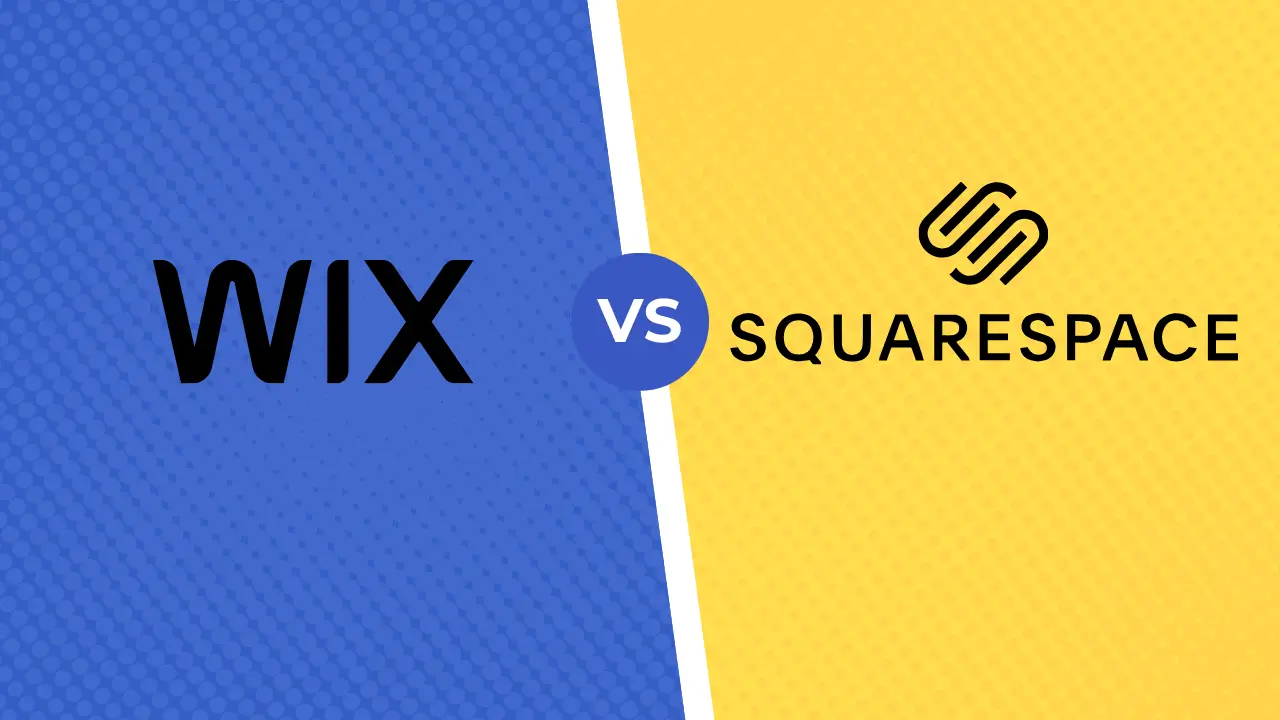Best Website Builders for SEO in 2025
Last updated: September 2025
Website builders optimized for SEO are platforms that enable easy website creation while incorporating features to enhance search engine optimization. These tools often have SEO-friendly templates optimized for mobile responsiveness and increased speed, increasing your website’s search ranking.
- Choose from 800+ designer made templates
- 1000+ innovative small business features
- Enterprise level security
- Used by millions of businesses across the globe
- Fully customizable, user-friendly interface
- Seamless integrations to boost your business
- 24/7 live chat support
- Sell globally with an online store
- Free email accounts with different plans
- Easy drag & drop WordPress builder
- Get started with over 300 templates
- 24/7 builder support
- 1 month money back trial
- Free domain for first year
- Customer support available 24/7
- Used by 123,000 small business owners
- No coding or design experience required
- Create a website within 10 min
- 100+ Professional templates
- 30-day money-back guarantee
- Lightning-fast website load time
- Every builder element is customizable
- Separate mobile & desktop editing ability
- Free advertising credits on registration
- Top rated drag & drop editor
- Live editing capabilities
- Powers 5,000,000+ websites
Why You Can Trust the Expertise of Sonary
At Sonary, we are committed to providing accurate and trustworthy information to help you make informed decisions. Our research process is meticulous, transparent, and guided by a dedication to maintaining the highest standards of integrity.
Unlike many other review platforms, we conduct in-depth evaluations of the software and services we feature. Our expert team tests and actively uses the tools we review to understand their features, performance, and value comprehensively. Our assessments are based on real-world use, giving you insights beyond surface-level descriptions.
Our research methodology includes analyzing key consumer factors such as pricing, functionality, device usability, scalability, customer support quality, and unique industry-specific features.
This hands-on approach and dedication to transparency mean you can trust Sonary to deliver regular, up-to-date content and recommendations that are well-researched and genuinely helpful for your business needs.
The higher you rank, the more people learn about your business and potentially become your customers. Let’s compare the best website builders for SEO and help your business boost its outreach.
What Does a Website Builder Designed for SEO Do?
An SEO website builder simplifies the creation of websites optimized for search engines right from the start. It offers SEO-friendly responsive templates that look great on all devices and load quickly, addressing two crucial search ranking factors: usability and speed.
These builders also have meta tag customization with easy editing, sitemap generation, URL customization, and image optimization, all of which make it easier for Google and other search engines to read and understand your website — which makes them very happy. We’ll dive into these features a little later.
Businesses and individuals can effectively enhance their online presence without needing deep technical expertise by using an SEO website builder with these integrated SEO tools.
These builders ensure that the foundational elements of SEO are covered, paving the way for more advanced SEO strategies.
Why is SEO so Important?
SEO, or Search Engine Optimization, is crucial for any business or individual looking to increase their online visibility and attract more traffic to their website.
Effective SEO ensures that your site appears higher on the search engine results pages (SERPs), which is vital because most users rarely venture beyond the first page of search results.
A higher ranking increases your website’s visibility, leading to more organic traffic, which can translate into increased sales, conversions, and brand recognition.
Furthermore, SEO helps build trust and credibility with your audience by ensuring your site is accessible, fast, and provides valuable content.
On top of building your website with SEO in mind, if you add quality and SEO-driven content, you’ll find that newcomers find a reason to return, and that’s how you build customer loyalty.
In a digital age where the competition for attention is fierce, SEO is an indispensable tool for reaching out and engaging your target audience effectively.

5 Best Website Builders for SEO
Here are five of the best SEO website builders that combine ease of use with powerful optimization tools to help you effectively create, manage, and enhance your online presence.
- Wix
Price: Monthly plans start at $17/month. There is a 14-day money-back guarantee. A free version with limited features is available. - WordPress
Price: Monthly plans start at $4/month. 14-day free trial - Shopify
Price: Monthly plans start at $5/month. Free trial available, but no free version. - Elementor
Price: Monthly plans start at $59/month. 30-day money-back guarantee. - web.com
Price: Monthly plans start at $4.95/month. Free trial available.
These website builders offer competitive features and pricing compared to other website builders in the industry.
Popular Types of Website Builders Designed for SEO
When selecting a website builder with SEO in mind, you’ll want to understand the different types available. Each type caters to different needs, whether you’re a blogger, small business, or larger enterprise.
You should also consider the scale of your project and how much control you want over the SEO aspects of your website. Each category provides different templates and tools that can help maximize your site’s search engine visibility.
-
All-Purpose Website Builders for SEO
These platforms are versatile and suitable for most types of websites, including blogs, portfolios, and small business sites. Examples include Wix and Squarespace, which offer robust SEO tools that help manage titles, descriptions, and custom URLs effortlessly. -
E-commerce Website Builders
Builders like Shopify and BigCommerce are designed for online stores with specialized SEO features to handle product descriptions, manage inventory, and optimize online store pages. This is to attract more traffic. eCommerce features are important for SEO, as they help generate sitemaps, write optimized meta descriptions, and handle SEO tasks automatically.
-
Portfolio Website Builders
For artists, photographers, and designers, platforms like Adobe Portfolio and Format provide clean, customizable templates optimized for visual content while still including basic SEO functionalities. -
Blog-Specific Builders
Platforms like WordPress and Wix are tailored to bloggers, offering extensive SEO plugins and tools that help optimize posts and tagging and provide Google-friendly sitemaps.
-
Drag and Drop Builders
Ideal for beginners, these builders offer maximum flexibility in design while integrating SEO essentials. Tools like Elementor and Shopify allow users to manipulate web elements easily and embed SEO features without coding knowledge.
Do I Really Need a Website Builder Designed for SEO?
If you want to boost your online presence and build your audience, then SEO-specialized website builders are the way to go. Investing in a website builder with strong SEO features is not just about building a website — it’s about creating a website that performs well in search results, enhances user engagement, and supports the growth of your business or personal brand online.
Here are some of the advantages:
-
Enhanced Search Engine Visibility
- They provide the necessary tools to ensure your website meets search engine guidelines and ranks well in search results. This includes optimized templates, automatic sitemap generation, and the ability to customize meta tags and URLs. Additionally, Google Analytics integration allows you to easily track and analyze your site’s performance, further boosting your search engine rankings.
-
Time and Cost Efficiency
- By integrating SEO functionalities directly into the builder, these platforms eliminate the need for extensive manual coding or hiring an SEO specialist, saving both time and money.
-
User Experience Optimization
- SEO isn’t just about pleasing search engines. A good SEO strategy improves the user experience by ensuring fast load times, mobile responsiveness, and easy navigation — all of which modern SEO website builders facilitate.
-
Sustainable Competitive Advantage
- With better SEO tools at your disposal, your website can consistently rank high in search results, drawing more traffic and potentially increasing conversions and sales over time.
-
Scalability
-
- As your business grows, your website’s content and structure will need to evolve. SEO-friendly website builders are designed to accommodate growth, making it easy to update SEO practices and expand your site’s capabilities without starting from scratch.
The Average Pricing of Website Builders for SEO
The cost of website builders designed for SEO varies based on features, scalability, and the level of support offered.
When considering a website builder, evaluate how the features offered in each pricing tier align with your SEO goals and website needs. Budgeting for a plan that grows with your business while providing essential SEO benefits is crucial for long-term success.
| Plans | Price | Description |
| Basic | $4 – $25 | Basic plans usually include access to templates, custom domain support, and basic SEO features, which are sufficient for smaller websites or personal blogs. |
| Advanced | $25 – $60 | These plans offer advanced SEO features, better support, and increased storage and bandwidth, making them suitable for growing businesses with higher traffic. |
| Premium | $40 – $300+ | These are best for large-scale businesses. They provide extensive SEO tools, no bandwidth restrictions, advanced analytics, and superior support. |
| Free Versions | $0 | Many website builders offer free versions, which are great for getting started without financial commitment. However, these often come with limitations, such as the presence of the builder’s branding, fewer SEO tools, and no custom domain names, which can impact the site’s professional appearance and SEO performance. |
Important Features for SEO
When evaluating website builders for SEO, several core features that most top platforms incorporate stand out. By understanding how to apply them effectively, you can significantly enhance the SEO potential of your website built with an SEO-focused website builder.
-
Responsive Design
- Ensures that your website is accessible and performs well on all devices, which is crucial as mobile-friendliness is a significant ranking factor. Make sure to choose a website builder that automatically creates a mobile-optimized version of your site.
-
Fast Loading Speeds
- Page speed is a direct ranking factor. Many website builders optimize this by providing integrated tools that compress images and prioritize above-the-fold content loading.
-
SSL Certification
- Secure websites (HTTPS) rank better and are more trusted by users. Most website builders include SSL certificates as part of their package, which encrypts data sent between the user and the server.
-
Sitemap Generation
- SEO-optimized builders automatically create a sitemap, making it easier for search engine bots to crawl and index the site’s pages efficiently.
-
SEO-Friendly URL Customization
- A clean URL structure that includes keywords can improve your site’s indexing. Use a builder that allows for customizing URL slugs and ensures your URLs are easy for users and search engines to understand.
-
Meta Tag Customization
- Meta titles and descriptions influence click-through rates from search results. These builders offer easy editing of meta titles and descriptions, which are pivotal in helping search engines understand the content of each page and how they should be indexed. Utilize the builder’s SEO settings to tailor these tags for each page, incorporating relevant keywords without overstuffing.
-
Image Optimization
- Includes tools to compress images for faster page loading and to input alt tags, enhancing image discoverability in search results.
-
Social Media Integration
- Social signals are not a direct ranking factor, but they influence SEO indirectly by increasing visibility and traffic. Ensure your builder can connect to your social media profiles and easily share your content.
-
Built-in Analytics
- To effectively optimize your site, you need to understand your traffic and user behavior. Opt for builders that offer integrated analytics tools or support easy integration with third-party analytics services like Google Analytics.

How to Choose the Right SEO-Friendly Website Builder for You
Selecting the ideal SEO-friendly website builder involves evaluating several vital factors to ensure the platform meets your needs and goals. The right builder makes it easy to create an attractive website and ensures that your site is optimized for search engines from the start.
-
Identify Your Needs
- Begin by defining the purpose of your website. Are you creating a blog, an online store, a portfolio, or a business site?
- Your website’s purpose will determine the features you need most, like e-commerce capabilities, rich media support, or advanced blogging tools.
-
Ease of Use
- Consider your technical skill level. If you’re a beginner, you might prefer a builder with drag-and-drop functionality and intuitive design options.
- More advanced users may seek platforms that offer more customization and control.
-
SEO Features
- Check for SEO capabilities such as customizable meta tags, responsive design options, fast loading speeds, and the ability to edit URLs.
- Also, look for features like sitemap generation and easy integration with Google Analytics.
-
Scalability
- Think about long-term growth. Will the builder accommodate your needs as your site expands?
- Check whether you can easily upgrade your plan to access greater bandwidth, more storage, better security features, and advanced SEO tools.
-
Customer Support
- Reliable customer support is crucial. Look for platforms that offer comprehensive support through tutorials, FAQs, live chat, email, or phone.
- This can be invaluable, especially when dealing with SEO questions or issues.
-
Pricing Structure
- Compare the costs of different website builders and what each pricing tier offers.
- Be sure to consider any additional costs for plugins, themes, or third-party tools you might need.
-
Comparative Tools:
- Using comparative tools can be a game-changer. They allow you to analyze and contrast different platforms based on key features such as SEO capabilities, ease of use, pricing, and customer support.
- They help you make an informed decision and understand which website builder is best for SEO and also fits your budget.
-
Reviews and Recommendations
- Research what other users say about their experiences with the website builder.
- Look for reviews focusing on SEO capabilities and overall satisfaction.
-
Trial Offers
- If available, take advantage of free trials to test the website builder’s interface and features.
- This can help you understand how well the builder meets your needs without committing financially.
Tips for Successful Implementation of an SEO-Friendly Website Builder Into Your Business
By carefully integrating an SEO-friendly website builder into your business operations and continuously refining your strategies based on analytics and feedback, you can significantly enhance your online presence and achieve your digital marketing goals.
-
Start with a Plan
- Before you begin building your website, have a clear strategy. Define your target audience, the goals of your website, and how you plan to achieve them. This will guide your content and design choices, ensuring they align with your SEO objectives.
-
Utilize Built-in SEO Tools
- Take full advantage of the SEO tools your website builder offers. Set up SEO basics like meta tags, headings, and alt text for images right from the start. These elements are crucial for improving your site’s discoverability.
-
Optimize for Mobile
- Ensure your site is mobile-friendly. A significant amount of web traffic comes from mobile devices, and search engines favor websites that perform well on these platforms.
-
Focus on Quality Content
- Content is king in the realm of SEO. Produce high-quality, relevant content that provides value to your audience. Regular updates with fresh content can also help improve your search engine rankings. There are some incredible AI creative tools that can help you create captivating content.
-
Monitor Your Analytics
- Use analytics tools to track your website’s performance. Monitoring metrics like traffic sources, bounce rates, and conversion rates can help you understand what’s working and what needs improvement.
-
Engage with Social Media
- Link your website to your social media profiles and vice versa. Sharing content across these platforms can drive traffic and improve SEO.
-
Educate Yourself and Your Team
- Stay updated on SEO best practices and algorithm updates. Consider training for yourself or your team to better understand how to leverage your website builder for optimal SEO performance.
-
Seek Feedback
- Gather feedback from users regarding their experience on your site. User feedback can provide insights into how you can further optimize your site for better performance and usability.
-
Regular SEO Audits
- Regularly check your website for SEO weaknesses like broken links, outdated content, or slow loading times. Addressing these issues promptly helps maintain your site’s health and search rankings.
-
Be Patient
- SEO is a long-term strategy. It takes time to see results, so stay consistent with your efforts and be patient.
Tips for improving your SEO content
Improving your SEO written content involves a blend of strategies and tools designed to enhance your website’s visibility and engagement.
From employing automation tools to understanding the nuances of user intent, as I’ve said, content is king. Here are some practical tips and insights.
-
SEO Automation
- Tools like SEMrush are increasingly used to automate SEO tasks, making processes like keyword tracking and competitor analysis more efficient.
-
Local SEO
- Focusing on local SEO can be particularly beneficial for smaller businesses trying to compete with more prominent brands.
-
Video SEO
- As video content continues to dominate, optimizing videos for search engines is crucial. This includes using accurate tags, descriptions, and chapters in your videos.
-
Social Media Trends
- Social listening tools like Buzzsumo and SproutSocial help identify trending keywords on social platforms, which can be crucial for creating timely and relevant content.
-
Long-tail Keywords
- These are beneficial for targeting niche demographics and have less competition, making them easier to rank in search engines.
-
User Intent
- Understanding whether users are looking for information, navigating websites, or looking to make a purchase can help tailor the content to meet their needs.
-
Content Depth on Product Pages
- Enhancing product pages with FAQs, user reviews, and detailed descriptions can improve SEO by providing more comprehensive content.
How Do Different Industries Use SEO-Friendly Website Builders?
Many industries tailor their use of SEO-optimizing website builders to target specific audiences, enhance user experience, and, ultimately, increase conversions.
-
Retail and E-commerce
- To create online stores that are visually appealing and optimized for search engines. Features like product optimization, meta descriptions for pages, and alt tags for product images help improve visibility and drive sales.
-
Professional Services
- Law firms, consulting firms, and financial advisors use them to establish credibility and attract local clients. They focus on optimizing content for local SEO, publishing relevant articles, and ensuring their contact information is easy to find and indexed.
-
Healthcare
- Hospitals, clinics, and private practices utilize them to provide patient information, medical services, and to book appointments online. SEO is crucial for them to rank well in local search results and to provide accessible health information that patients can easily find.
-
Hospitality
- Restaurants, hotels, and travel agencies use website builders to showcase their offerings and attract bookings. They focus on image optimization, customer reviews, and responsive design to ensure their sites are mobile-friendly and rank well for geographic-specific queries.
-
Real Estate
- Real estate agents use these tools to list properties and attract potential buyers and renters. SEO features help them target local search terms, integrate Google Maps, and optimize property images.
-
Education
- Schools and educational institutions use them to publish information about their programs and attract new students. They optimize educational content, campus information, and admission procedures to improve their visibility in search results.

- Schools and educational institutions use them to publish information about their programs and attract new students. They optimize educational content, campus information, and admission procedures to improve their visibility in search results.
Which Personas Use SEO-Friendly Website Builders?
Each persona uses SEO-friendly website builders to achieve specific goals, whether to grow a business, expand readership, or increase visibility for their services. Here’s a look at the key personas who commonly utilize these tools:
-
Small Business Owners
- Often lacking in-depth technical skills, they rely on these builders to create a professional online presence — quickly. They benefit from user-friendly design tools, and SEO features that help attract local customer traffic.
-
Entrepreneurs and Startups
- These users need to establish an online presence fast and on a budget. They utilize these website builders to launch sites that can easily scale as their business grows, leveraging built-in SEO tools to enhance visibility from the start.
-
Bloggers and Content Creators
- Individuals focused on producing and monetizing content use these platforms to ensure their articles and videos are optimized for search engines, helping to attract more organic traffic and grow their audience.
-
Marketing Professionals
- To create landing pages and marketing campaigns that are optimized for conversions. The SEO tools help ensure these pages rank well and reach their target audience effectively.
-
Freelancers and Consultants
- To showcase their portfolios and services. SEO features help them rank well in searches related to their expertise, thus attracting potential clients.
-
Non-profits and Educational Institutions
- To maximize outreach and engagement without extensive resources dedicated to web development. SEO tools help them reach a broader audience with their messages and educational content.
Which Type of Hardware Is Needed?
Implementing these builders doesn’t require advanced hardware — they are designed to be accessible and user-friendly, operating fully online. You should be equipped to build, manage, and optimize your site as long as you have a reliable computer with internet access and a modern web browser.
Here’s what you typically need:
-
Computer
- A standard desktop or laptop computer with an up-to-date operating system (OS) such as Windows, macOS, or Linux will suffice.
- The most critical aspect is ensuring your system can run a modern web browser smoothly.
-
Internet Connection
- A stable and reasonably fast internet connection is essential since website builders are cloud-based platforms.
- This ensures that you can upload content, use the design tools, and preview your site without significant delays.
-
Web Browser
- Use a current version of web browsers like Google Chrome, Mozilla Firefox, Safari, or Microsoft Edge.
- These browsers are compatible with most website builders and offer the best performance and security.
-
Minimum Hardware Requirements
- While specific requirements vary, most website builders do not require powerful hardware.
- A computer with at least 4GB of RAM and a decent processor (such as an Intel i3 or better) should provide a smooth experience.
-
Mobile Device
- A smartphone or tablet can be beneficial for testing how your website appears on mobile devices.
- This helps ensure that your site looks good and functions well across all device types, which is crucial for SEO and user experience.
Which Products Integrate with SEO-Friendly Website Builders
Each of these integrations brings unique benefits, enhancing a website’s functionality, improving SEO outcomes, and ultimately contributing to a more robust digital presence. These integrations help website builders become more versatile tools that can meet various business needs more efficiently.
-
Google Analytics and Google Search Console
- Essential for tracking website performance and search engine visibility.
- Integrating them lets you see how visitors interact with your site, monitor organic search traffic, and optimize based on real-time data.
-
CRM Software
- Customer relationship management (CRM) software like Salesforce or Pipedrive can be integrated to manage customer interactions better.
- They streamline processes and improve customer service, all while maintaining SEO best practices.
-
Email Marketing Services
- Tools like Mailchimp or Constant Contact can be integrated to manage subscriber lists, send out newsletters, and drive campaigns directly from the website.
- This helps maintain continuous engagement with your audience, which benefits retention and conversion.
-
Social Media Platforms
- Integrating social media can drive traffic, boost SEO, and enhance user engagement.
- When content from a website can be easily shared to social platforms like Facebook, Twitter, or Instagram, it increases the site’s reach and potential for backlinks.
-
Content Management Systems (CMS)
- Integrating powerful CMS platforms like WordPress or Joomla can offer advanced content creation tools, flexibility, and extensive SEO customization options.
Final Thoughts
Choosing the right website builder for SEO optimization is a crucial step for anyone looking to establish a robust online presence.
Whether you’re a small business owner, an entrepreneur, or a content creator, these tools offer a powerful way to create a website that looks great and performs well in search engine results. By integrating essential SEO features, such as mobile responsiveness, customizable meta tags, and analytics, these builders help streamline the process of optimizing your site for search engines.
Moreover, the ability to integrate with third-party products like Google Analytics, e-commerce platforms, and social media tools further enhances the functionality and effectiveness of your website.
As the digital landscape evolves, staying informed about the latest SEO practices and continuously adapting your strategy will be vital to maintaining a competitive edge.
By leveraging the right website builder and making full use of its features and integrations, you can ensure that your site attracts, retains, and converts your target audience effectively. You’ll even be able to build a fan base of loyal consumers.
FAQs
Q: What makes a website builder SEO-friendly?A: An SEO-friendly website builder includes features like customizable meta tags, responsive design templates, fast loading speeds, and easy integration with analytics tools. These features help improve a website’s visibility and ranking on search engine results pages.
Q: Can I use a free website builder for SEO?A: Many website builders offer free versions that include basic SEO tools. However, these might lack advanced features such as custom domain names and full customization options, which are crucial for better SEO performance.
Q: How does integrating Google Analytics help my website’s SEO?A: Integrating Google Analytics helps you track visitor behavior, traffic sources, and engagement metrics, which are essential for optimizing your website’s SEO strategy and improving your site’s search engine rankings.
Q: Are there specific website builders recommended for e-commerce SEO?A: E-commerce-specific website builders like Shopify and BigCommerce are recommended for their advanced SEO features tailored for online stores, including product optimization, sitemap generation, and easy integration with e-commerce analytics.
Q: Why are eCommerce features important for SEO?A: eCommerce features are crucial for SEO as they help automate SEO tasks, generate sitemaps, and write optimized meta descriptions. These features improve user experience and website functionality, which can lead to better search engine rankings.














